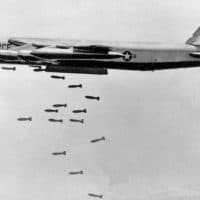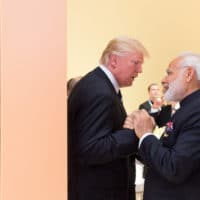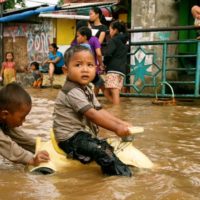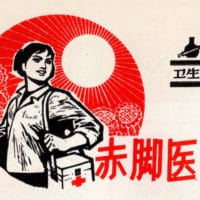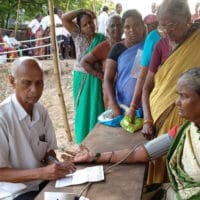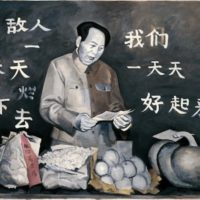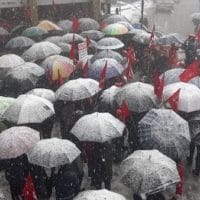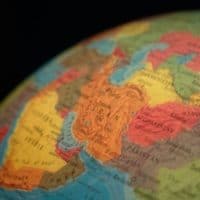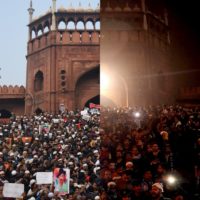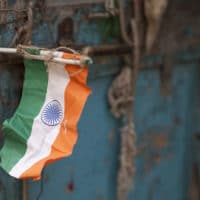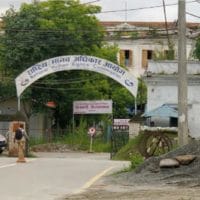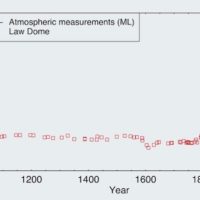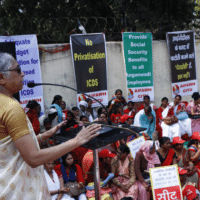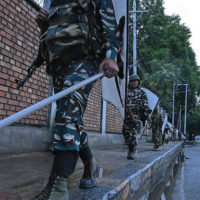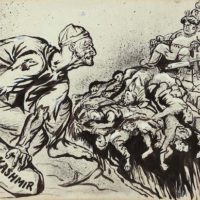-
A little help from their friends: How Vietnam withstood largest bombing campaign in human history
Between 1965 the 1975, the United States Air Force dropped over three times more bombs on the Southeast Asian nations of Vietnam, Laos and Cambodia than the total tonnage dropped by the Allies during World War II.
-
A World no longer shaped by Atlantic powers
The annual Munich Security Conference that took place February 14-16 this year turned out to be an iconic event, drawing comparison with the one held in the same Bavarian city on February 10, 2007, where in a prophetic speech Russian President Vladimir Putin had criticized the world order characterized by the United States’ global hegemony and its “almost uncontained hyper use of force—military force—in international relations.”
-
How India’s Modi is playing on Trump’s ego to his advantage
One thing about U.S. President Donald Trump is that he can be brutally frank. Trump recently picked up the phone and called British Prime Minister Boris Johnson to convey his displeasure over the latter’s decision to allow Huawei to operate in the UK despite Washington’s repeated urgings.
-
Standing up for Left literature—In India, it can cost you your life
On February 16, 2015, Govind and Uma Pansare went for a morning walk near their home in Pune (Maharashtra, India). Two men on a motorcycle stopped near them and asked for directions, but the Pansares could not help them; one of the men laughed, removed a gun, and shot the two. Uma survived the attack but Govind died in a hospital on February 20, 2015.
-
Climate emergency: Indonesia faces catastrophic floods, disappearing islands
While the stark reality of the global climate emergency struck home in Australia with its worst bushfire season, its neighbour Indonesia faced catastrophic floods and islands disappearing below the rising sea. Green Left’s Peter Boyle interviewed Yuyun Harmono, the climate change campaigner of Friends of the Earth Indonesia (Wahana Lingkungan Hidup Indonesia – WAHLI).
-
This is the time for solidarity, not stigma
In December 2019, several people began to develop infections in Wuhan (People’s Republic of China); early signs indicated that the virus had emerged out of the Huanan Seafood Wholesale Market, but there is no certainty about that verdict.
-
Dossier 25: People’s Polyclinics: The initiative of the Telugu communist movement
Under the shadow of the Charter of the United Nations (1945) and the Universal Declaration of Human Rights (1948), countries are obliged to guarantee the right to health. The 1946 Constitution of the World Health Organisation (WHO) defines health as ‘a state of complete physical, mental, and social well-being and not merely the absence of disease or infirmity’.
-
Your arrow can pierce the sky, but ours has gone into orbit
On Wednesday, 15 January, China and the United States agreed to suspend their full-scale trade war. From February 2018, the United States placed tariffs on Chinese goods that entered the US market, and then China retaliated. This tit-for-tat game continued for almost two years, causing massive disruption in the global value chain.
-
Not an inch: Indian students stand against the far-right
With her head bandaged and her arm in a sling, university student Aishe Ghosh went before the cameras to say that the students of the university she attends in New Delhi would move “not an inch back.”
-
Indian workers fight back: 250 million people go on strike
Millions of Indians hit the streets today in support of the general strike and as part of nationwide coalition-building efforts to resist the policies of the right-wing Modi government.
-
Is this the end of U.S. interference in West Asia?
Iran’s Foreign Minister Javad Zarif reacted strongly to U.S. Secretary of State Mike Pompeo’s suggestion that Iraqis were “dancing in the street” to celebrate the assassination. On Twitter, Zarif posted pictures of the funeral procession for Soleimani and wrote, “End of U.S. malign presence in West Asia has begun.”
-
Dossier 24: The world oscillates between crises and protests
This dossier is dedicated to offering an assessment of the moment we find ourselves in today. Part 1 provides a quick overview of planetary affairs; and Part 2 there are more detailed reports from our offices on their respective regions: South Africa, India, as well as the Caribbean and Latin America.
-
India’s Government is going to war against its own people
On December 13, the United Nations high commissioner for human rights released a powerful statement that criticized India’s new citizenship law. This “fundamentally discriminatory” Citizenship (Amendment) Act of 2019 would expedite citizenship for persecuted religious minorities from India’s neighboring countries. But in the list of those minorities, it names only Hindus, Sikhs, Buddhists, Jains, Parsis, and Christians.
-
Police killed CPN leader Paudel in cold blood: NHRC
The NHRC has recommended that the government should investigate officers issuing orders to police officials who acted against Paudel and bring them to book.
-
Climate Justice in India: A critical overview
Global climate strike led by Greta Thunberg and youth around the world has trigged climate justice debates in the mainstream. In India, from the past few weeks, we have witnessed climate protests in major metropolitan cities demanding governments to act on the current climate crisis to ensure a livable future for the coming generations.
-
Navigating Educational Empowerment Through Life Conditions: A Study of Rural Women in Indian Punjab
Though the voices of rural women in India are some of the least heard, they are not mere passive victims. Many rural women strongly condemn their marginalization and pauperization—highlighting the flawed and biased developmental polices of the state, which they hold largely responsible for their hardships.
-
Victims left behind in U.S. Agent Orange cleanup efforts
Vietnamese victims have yet to receive compensation–and many live in desperate poverty.
-
Kashmir on the edge of the abyss
Tariq Ali on the situation in Kashmir.
-
Outsourcing exploitation: global labor-value chains
Through their control over supply chains, multinationals based in the global north exploit workers in the global south.
-
History often proceeds by jumps and zig-zags
The main conflict here – since the 1940s – has been between India and Pakistan. Disagreements are deeply rooted in the political culture of each country. The rise of the far right in India has only inflamed the conflict further.

